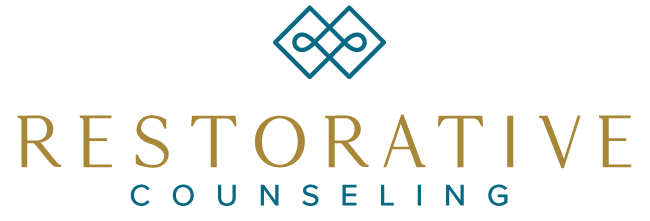Intuition: A Love Song to Yourself (part 2)
In part one of this blog post you learned how to reawaken and reacquaint yourself with your dynamic inner voice, intuition. You also learned the biological origin of this inner knowing and how to access it. If you have made it this far, then you my dear might be serious about this self-actualization thing. Take a moment to give yourself a mental pat on the back.
In this post you’ll see how to recognize and name your intuition. Most importantly, you will learn how to begin to trust this voice. Remember that as we take this journey together that mindfulness will be highly recommended. Which is just a fancy way to say be kind to yourself!
Identifying your intuition
By now you may be curious if your gut feelings you are truly intuition or just a mishmash of other thoughts, feelings, emotions, or urges. If you are on a counseling journey, your counselor may be currently doing the heavy lifting of differentiating your anxiety and worries from the true inner knowing or intuition. This is our job and we love to do it. However, we also want to ensure that when we end our time with you (sheds gentle tear) that you are confident about and more highly attuned with your inner self.
One way we do this is by helping our clients differentiate their intuition from anxiety, which is a feeling of unease or worry. Anxious thoughts can seem as if they are coming from an honest place of intuition. If anxiety had a favorite holiday, it would definitely be Halloween and its favorite costume without a doubt is intuition. For instance, we may subconsciously fear meeting new people. Anxiety will present itself as intuition and tell us that it’s best to avoid the situation completely no matter the consequences. But that in turn may have consequences that are worse than the reality of taking part. Like having a very small circle of friends and acquaintances.
How to tell the difference between intuition and anxiety
Here are some personifications of intuition and anxiety. If you’re experiencing more of one than the other, you’ll know whether you’re anxious or if your intuition is shining through and you should listen to it.
Intuition
Intuition is the cool, accomplished cousin that may only show up occasionally for family gatherings. But they make all of the important ones. Intuition doesn’t rush you into decisions, and instinctively feels aligned with your values and views. They calm your emotions and rarely cause you physical distress.
Anxiety
On the other hand, anxiety shows up all the time like that other cousin who always needs your help and makes you feel bad if you don’t. They play on your emotions and pester you until you give in or blow up at them. They disconnect you from the present moment and try to paint a picture of an upcoming catastrophe that only you can help them avoid. When this cousin comes to call you feel very emotional and may even have visceral physical feelings.
Recognizing which cousin is visiting can remove stress and replace it with confidence and calm. I love helping my clients learn the difference and apply that insight to their daily lives.
Practicing Trusting Your Intuition
Congratulations on making it this far! You’ve learned what and where your intuition is and how to differentiate it from anxious thoughts. Now let’s look at a few ways to practice tapping into your intuition.
The first, and most commonly recommended, is meditation. The slower brain waves present during meditation create a great access point for intuition. You can also cultivate a meditative state by engaging in yoga practices.
Another great way to practice trusting your intuition is to actively notice synchronicities, which are patterns or groupings that occur in your life. Synchronicities may appear in repeated numbers (e.g., 4-4-4), images (e.g., seeing a lot of squares everywhere), or experiences (e.g., repeatedly seeing specific insects, animals, etc.). When you actively open your awareness of these phenomena, you begin to engage in mindful living. This in-the-present and calm state facilitates deeper intuitive learning.
Why not begin to journal or write down your hunches as they come to you? Then you can have a solid, objective record of your intuition being correct. This will build your trust in yourself which becomes a wonderful self-reinforcing state.
Another way to kickstart greater intuitive learning is to set a date with yourself. However, instead of perusing menus of new restaurants or the prices of a new local attraction, leave this period of time free. When the date and time arrive, wait patiently for your intuition to lead you to a person, place, thing, or activity. Then follow it. You’ll be pleasantly surprised where your intuition leads you when you become a willing participant.
Lastly, psychotherapy is an amazing tool to help you along your path of greater intuitive learning. I whole heartedly enjoy partnering with my clients on their great explorations of self-love and psychological healing. If you are curious about beginning or continuing your journey towards greater self-understanding, I’d be honored to connect with you.


